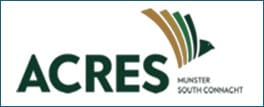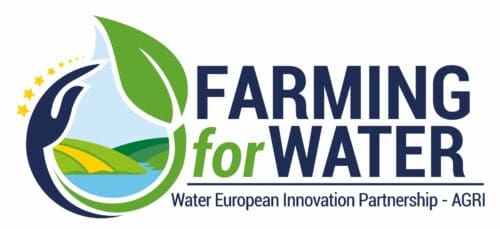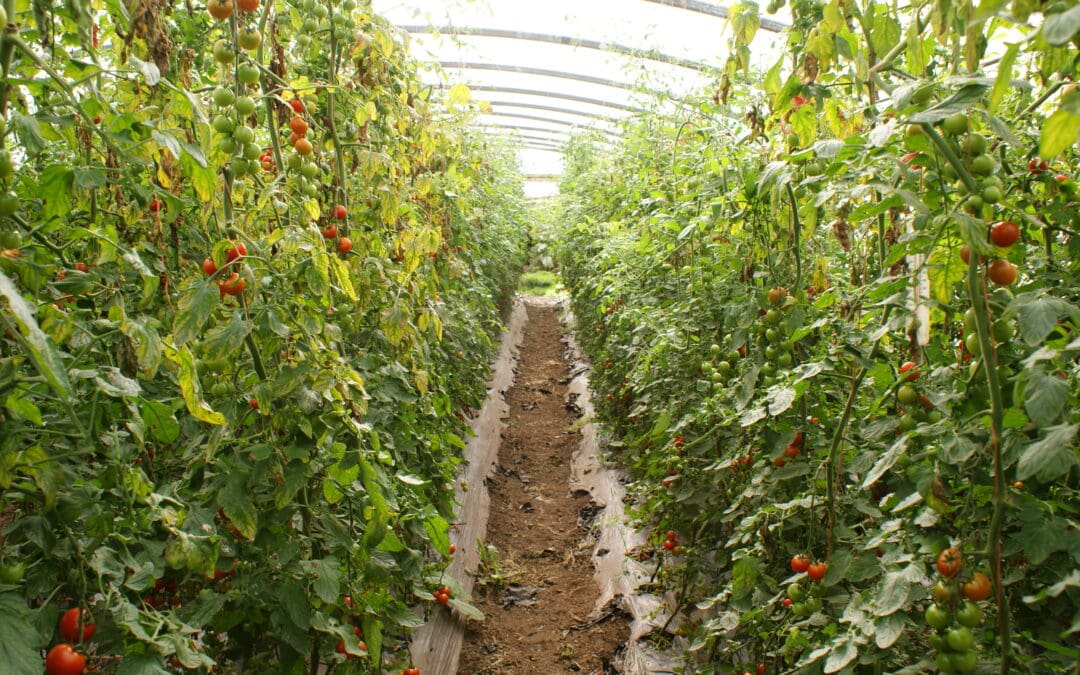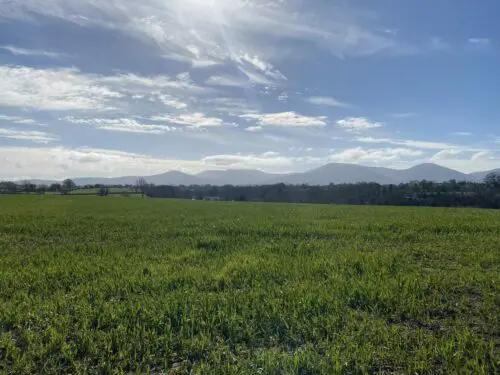ACRES CP and Farming for Water EIP are combining forces for the first time on the Comeragh Mountains to work with local landowners to improve water quality and biodiversity in the river catchment areas of Tay, Mahon and Dalligan in Co. Waterford. The result has been a more efficient use of public resources at the landscape level while helping participants to access the largest amount of financial supports possible from both schemes.
The Agri-Climate Rural Environment Scheme (ACRES) is Ireland’s flagship agri-environment programme under the CAP Strategic Plan (CSP) 2023-2027 and aims to combat biodiversity decline while providing income support to 55,000 farm families. Farmers located in defined high priority geographical areas fall under ACRES Cooperation can receive up to €35,000 for results-based habitat assessment payments and a further €17,500 for delivering Non Productive Investments (NPI’s) and Landscape Actions (LA) over the 5 years of the scheme.
The Farming for Water European Innovation Partnership (EIP) is a €50million project supporting 43 different measures specifically targeted at protecting watercourses and the wildlife they support in priority areas for action.
The river catchments of Tay, Mahon and Dalligan in Co. Waterford are located in both an ACRES Cooperation area and an area defined priority areas for action in improving local water quality. The River Tay, in particular, is a key river in the local area as a habitat for sea trout and salmon and a source of drinking water for Stradbally. The quality of the water in the River Tay can also impact on the beach at Stradbally where visiting holiday makers and tourists are an important source of income for the local economy.
The Farming for Water EIP is supporting local farmers through the ASSAP programme. ASSAP advisors from either Teagasc or Tirlán are walking the land with participant farmers to create a rainwater management plan based on how water moves across their farm during inclement weather. This gives all involved a clear picture of where water flows on the land and which measures work best to help protect and improve water quality. The farmer is paid €250 for the creation of this mandatory plan while the application advice and form filling are free of charge.
Many mitigation measures are eligible for funding under both Farming for Water EIP and ACRES and so the avoidance of double funding is essential. This is taken into account when farmers are creating their Farming for Water EIP farm plan. Through this combined approach the maximum biodiversity and water quality benefits are created on each farm which benefits farmers financially.
Padraig Cronin from the Munster South Connacht CP Team explains the benefit of this approach for farmers: “This collaboration highlights the opportunities for farmers in the Comeragh Mountains ACRES CP region that there is another funding stream available to them for delivering actions which aim to restore and improve water quality in these special river catchments. There is no cost to the farmer for joining the Farming for Water EIP scheme and they will be provided with expert help through the application process. The actions that the farmers select will dictate the overall payment and there is an excellent choice available. The more actions selected the higher the payment.”
A recent meeting at St Brigid’s Community Centre in Kilrossanty, Co Waterford, successfully showcased the funding schemes and measures available to protect water quality along the River Tay. The large number of local farmers who attended learned more about each scheme and how this joined up approach would result in better protection of the local environment and provide additional payments for local landowners.
This combined effort has been successful so far and both parties intend to continue developing this approach in other areas of the country where both schemes overlap. Padraig Cronin explains further. “We the ACRES Munster South Connacht CP team are excited to see how this collaboration develops and hope to run some farmer information evenings during the summer months to highlight works delivered on the ground through both agri-environmental programmes.”
To find out more, visit farmingforwater.ie and acresireland.ie.
Check out our WaterMARKE case study to learn how the ASSAP approach has improved water quality in Lough Ennell, Co. Westmeath here.
Meet Jonathan and Mary Blackmore, our latest case study farmers who are beef farming and participating in ACRES CP in Co. Limerick here.
Image source: ACRES Munster South Connacht









